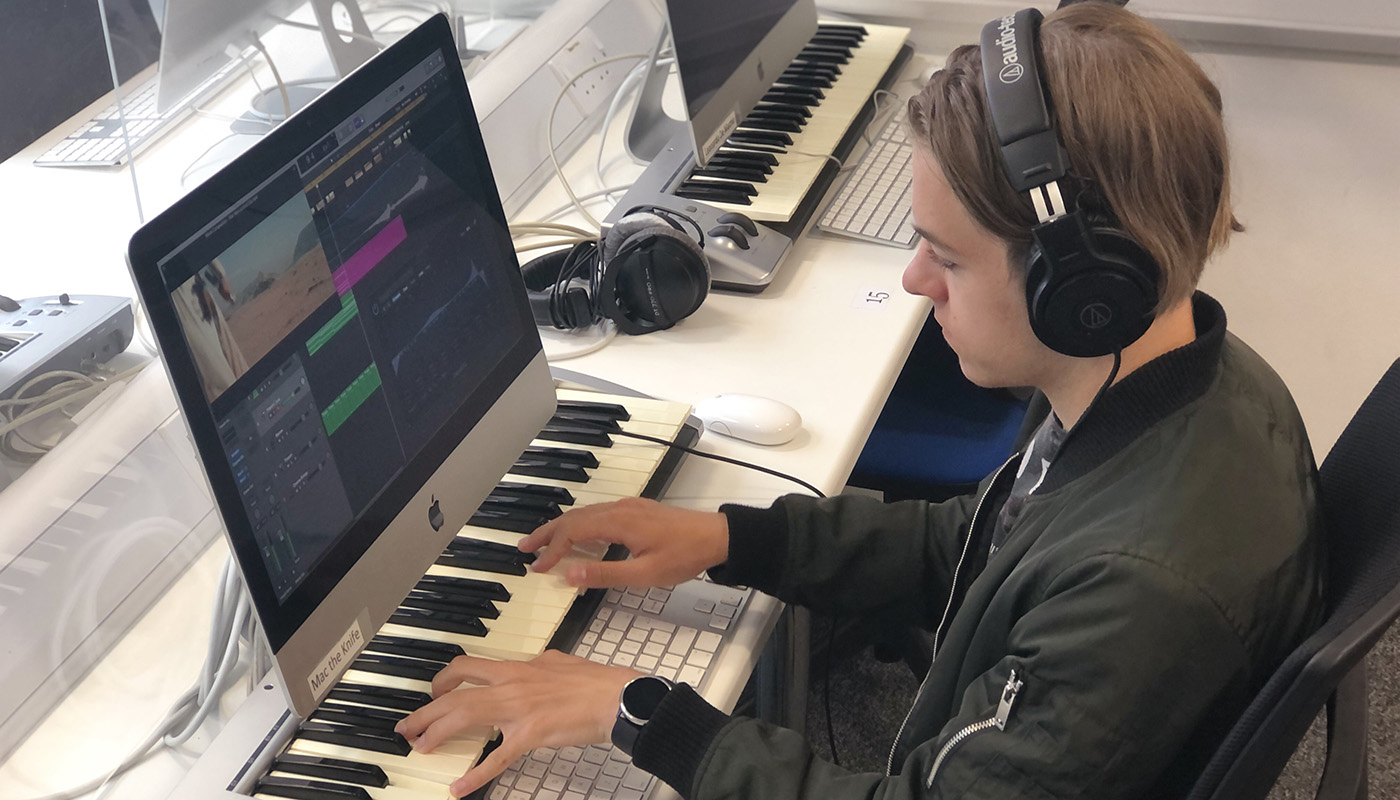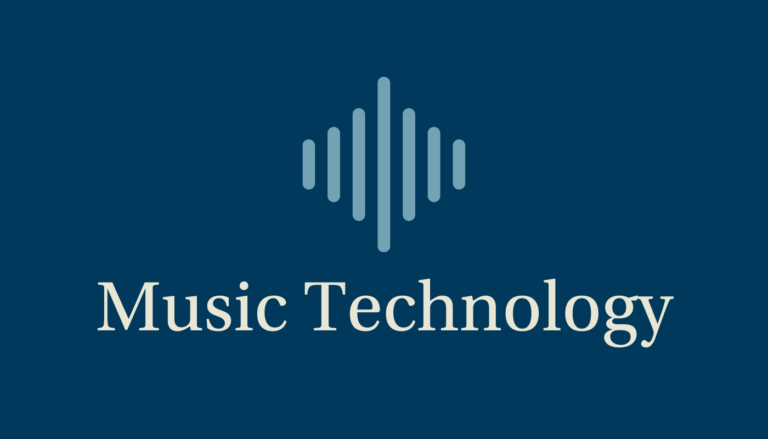Music Technology

In the recording component you will study the technical workings of specific pieces of hardware, including microphones, loudspeakers, cables and DI boxes. You will also learn capture methods for a range of musical instruments as well as corrective audio production in Logic Pro.
In the composing component you will create short pieces of music, in a range of different genres, focused on specific criterion, including sampling, synthesis and creative FX. Creative music production and traditional musical composition tools, including harmony, melody, rhythm, structure and texture will be studied.
In the listening component you will study how technology has shaped musical style and the general popular music landscape from 1940 to present day. Styles of music will include 1950s Rock & Roll, 1980s Hip Hop, 1990s House & Trance and 2000s Drum & Bass. You will listen to a vast range of popular music and make specific links with the technology available at the time of release.
In the producing component you will study the art of ‘fixing’ a mix using advanced processing methods in Logic Pro.
Our professional technicians at Bailey Audio run a technical crew. Music Technology students therefore have many opportunities to assist at live events at the College. Tasks might include rigging a stage for live performance, monitoring sound/microphone levels, operating a lighting board, overseeing technical rehearsals and setting up portable PA systems.
Performance is not assessed as part of the Music Technology A level course, and therefore performers are encouraged to sign up as session musicians to assist Yeart 13 students completing recording coursework. Students may also participate in other College ensembles, including the Jazz Collective and Concert Band. Pop musicians have the opportunity to enter our annual Battle of the Bands competition, which takes place just before the Easter holidays.
The A level in Music Technology equips students with a variety of transferable skills, including creative problem solving, practical ICT application, creative self-expression, project management and critical listening. These skills are essential for students wishing to access all higher education courses, not just Music Technology.
A level Music Technology falls under the STEM (Science Technology Engineering Mathematics) category of study. Students will learn how to program MIDI messages, calculate frequency changes and delay time, combat phase issues when using multiple microphones and analyse digital waveforms. Students have enjoyed much success when combining this subject with the likes of Computer Science, Electronics, Mathematics and Physics, however, students studying humanities subjects historically take Music Technology as a creative outlet.
Students wishing to study Music Technology in higher education have a wealth of opportunities available to them. They may wish to specialise in areas such as Music Production, Music Marketing, Sound Engineering, Recording and Mixing, Live Sound Application, Film/Television/Radio Production or Creative Sound Design. These courses can be studied at Universities such as The University of Huddersfield, The University of Surrey and the University of Salford to name a few, or they can be studied at specialist institutions such as Leeds Conservatoire, Futureworks, in Manchester, and Point Blank Music School in London. Several courses now offer a year in industry, or ‘sandwich year’, which is extremely valuable when establishing a career after university.
The highly regarded ‘Tonmeister Course’ at the University of Surrey requires students to have Grade 5 Music Theory, A level Mathematics and A level Physics.
Recording – Coursework – 20% of marks
Composing – Coursework – 20% of marks
Listening – Written Exam – 25% of marks
Producing – Written/Practical Exam – 35% of marks
Summary
Recording
This piece of coursework requires you to choose one song from a list of ten artists. You will capture, edit, process and mix up to 24 tracks of audio. The final mix will be 3 – 3 ½ minutes in duration.
Composing
This piece of coursework requires you to choose one brief from a choice of three and complete an original musical composition in response to it. You will create, edit, manipulate and structure sounds to produce a piece of music that exploits all of the tools available in Logic Pro.
Listening
This written exam will test your knowledge and understanding of technology used in the production of music and the principals of sound production in the context of several unfamiliar recordings of popular music. In the second part of the exam you will be required to complete two extended responses testing your argumentative skills; one comparing two different versions of the same recording and one evaluating the wider impact of a specific piece of technology.
Producing
This written/practical exam will test your knowledge and understanding of editing, mixing and production techniques. You will be required to ‘fix’ a mix using digital audio editing tools, audio FX and processes and basic digital synthesis in Logic Pro. In the final part of the exam you will complete one extended response testing your technical evaluation of a picture related to a music technology scenario.
Music Technology students are expected to play an instrument. This might be vocals, guitar, piano or drums. You will use a MIDI keyboard to compose music, so you should have basic keyboard skills to get the most from the composing component. You might want to start with .
Music Technology is a highly technical course and you will learn lots of new skills. It would be a good idea to watch the following content, which will give you a flavour of what you will learn in each component. This will help you to decide if the course is right for you:
Component 1: Recording
Component 2: Composing
Component 3: Listening
Component 4: Producing
Study Level
A Level
Exam Board
Edexcel
Contact Details
Mr T Murphy
Teacher of Music Technology
murphy_t@sjd.ac.uk
